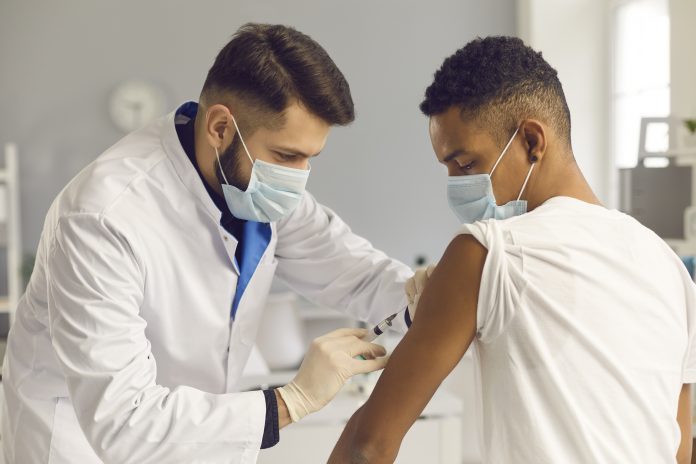New data has found that nearly 100% of people tested positive for COVID-19 antibodies after their second dose of the Pfizer or AstraZeneca vaccine
Over 207,337 participants tested themselves for COVID-19 antibodies at home using a finger prick test, following either infection or vaccination, between 12th and 25th May 2021.
In a report published by Imperial College London and Ipsos MORI, findings showed that almost 100% of people tested positive for antibodies 14 days after their second dose of the Pfizer and AstraZeneca vaccine.
Following the first vaccine, the number of people testing positive for antibodies peaked at 4 to 5 weeks and then started to decline before rising substantially in those who had a second dose.
Over 90% of people aged over 65 tested positive for antibodies, rising to 95% in those aged over 75 with 36% of 18 to 24-year-olds testing positive. At the time of the report, a quarter of respondents aged 18 to 24 said they had received one or 2 jabs compared to 99% of those aged over 75.
The report also found that the prevalence of antibodies was 30% lower in men than women and women also showed a higher antibody positivity after a single dose.
Health and Social Care Secretary Sajid Javid said:
Every vaccine is another brick in our wall of protection and I’m incredibly pleased that the latest data from REACT shows almost 100% of people tested positive for antibodies after their second dose of the vaccine.
This is a testament to the very high level of protection the vaccine provides – with 46,000 hospitalisations prevented and 30,000 lives saved.
I urge everyone to come forward for the vaccine, regardless of your race, religion or background. It could save your life and protect your loved ones, and getting the second jab will help us all return to doing the things we love.”
Vaccines Minister Nadhim Zahawi said:
“It is incredibly reassuring to see nearly every single person who took part in the REACT study developed detectable antibodies following 2 doses of the vaccine. It goes to show once again how 2 doses are vital for the best possible protection.
“Our vaccination programme is working and is severely weakening the link between cases, hospitalisations and deaths. We are continuing to make strong progress in boosting uptake for people living in deprived areas, as well as black and minority ethnic communities by working closely with faith and local leaders.
“As we lift restrictions next week, I urge anyone who has yet to be vaccinated to get both jabs to protect yourselves and your loved ones. Vaccines are safe and have so far prevented around 8 million infections, over 46,000 hospitalisations and around 30,000 deaths.”
Professor Helen Ward, Professor of Public Health at Imperial College London, said:
“Results of this very large study show the substantial impact of the vaccination programme on antibody positivity in adults. However, coverage of vaccines is uneven with people in some groups and areas less likely to have been vaccinated.
“It is concerning that people on low incomes, in deprived areas, some minority ethnic groups and in some public facing occupations such as hospitality, may remain relatively unprotected from future spread. We need to continue and intensify efforts to reach these groups with vaccination, and to ensure other protective measures are in place.”
Professor Paul Elliott, director of the REACT programme from Imperial’s School of Public Health, said:
“Antibodies play an important role in protecting against future illness, which is why our REACT programme has been tracking coronavirus antibodies in the population since early on in the pandemic. So it’s very encouraging to see a greater than fourfold increase in antibody prevalence since our last findings in January, highlighting the impact of the vaccination programme. More importantly, our findings also reinforce the need to get fully vaccinated to protect yourself and those around you.”











